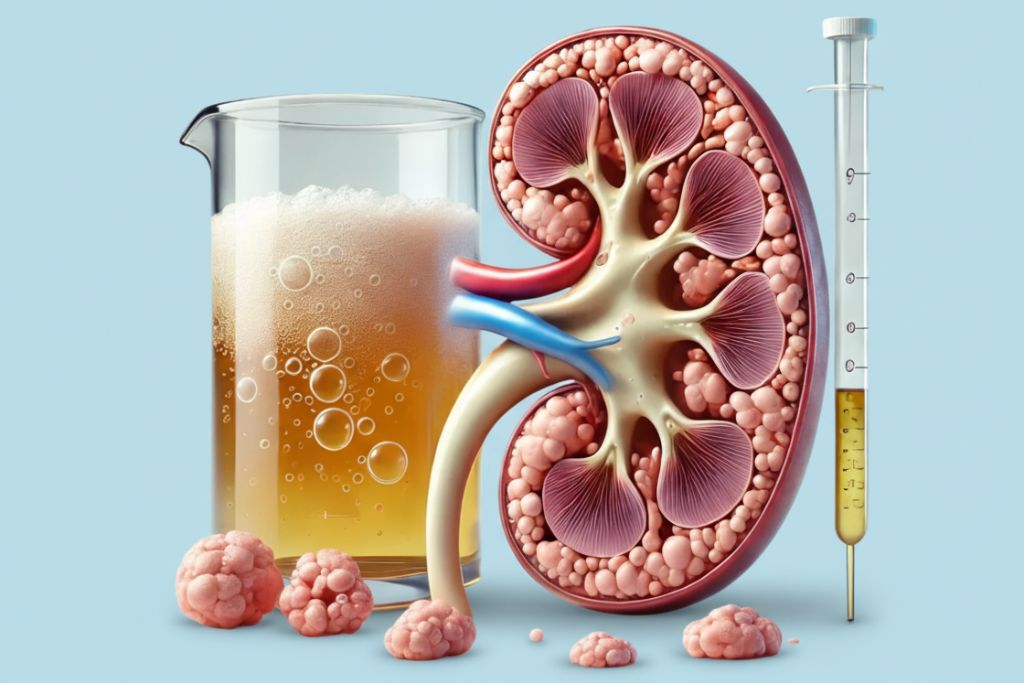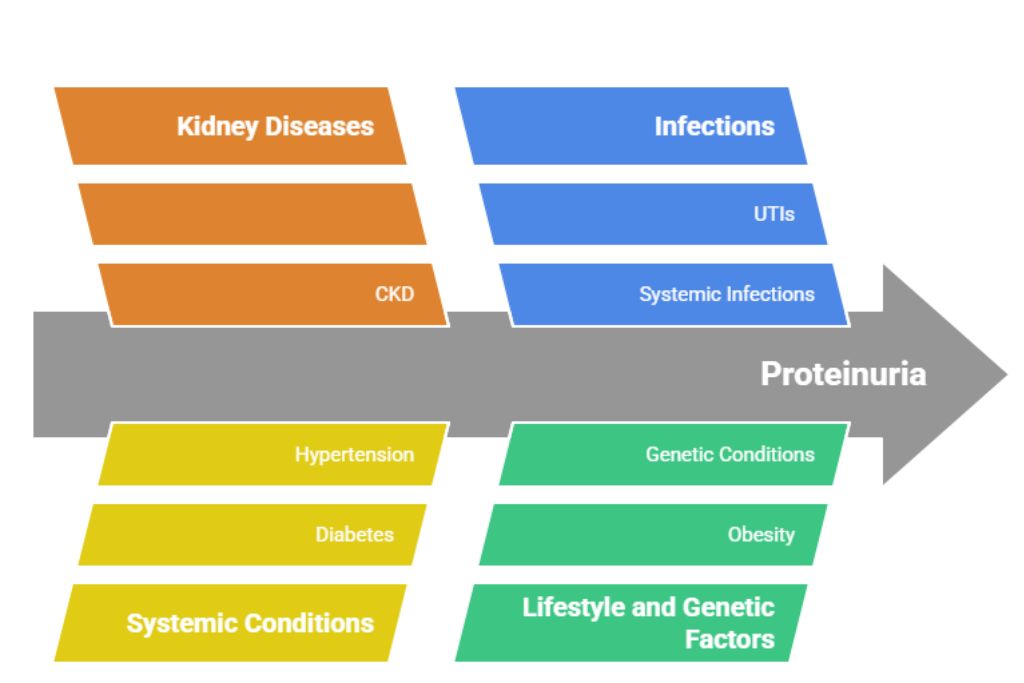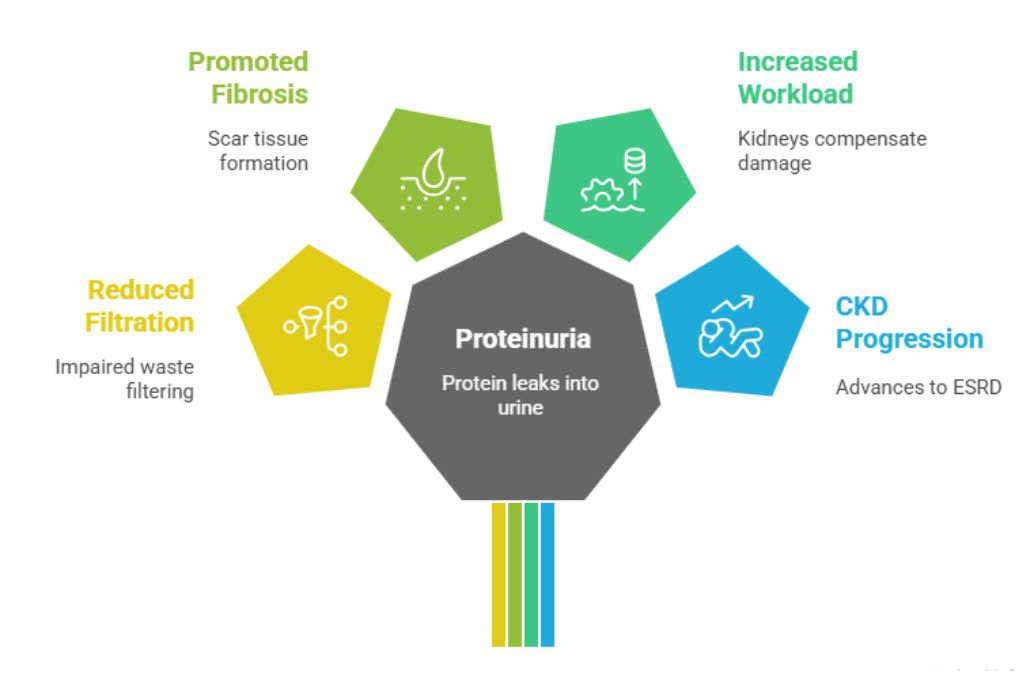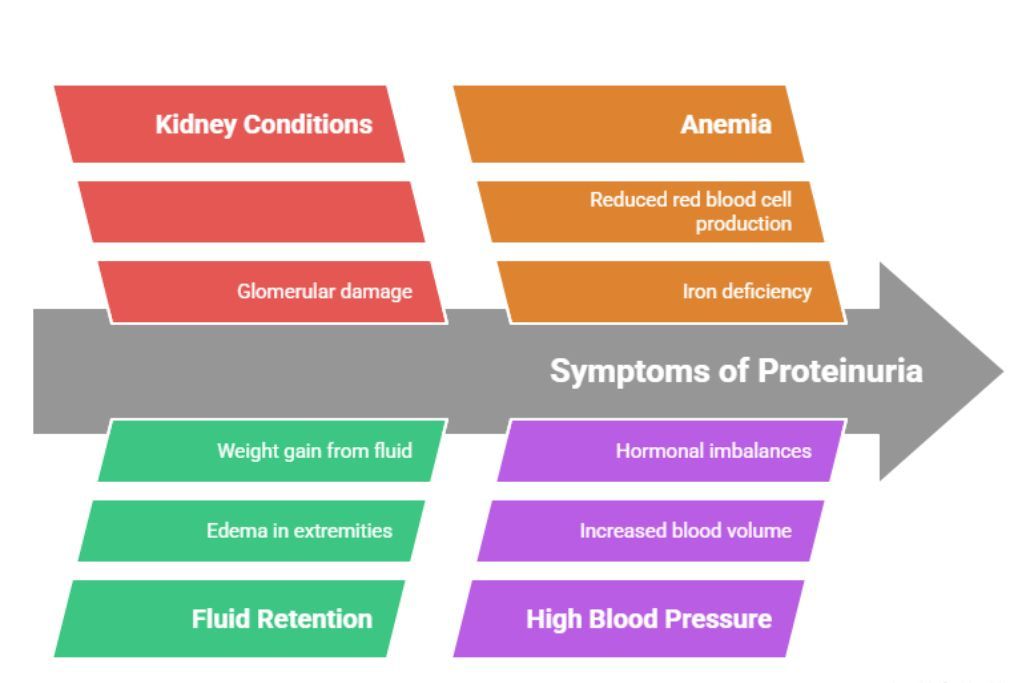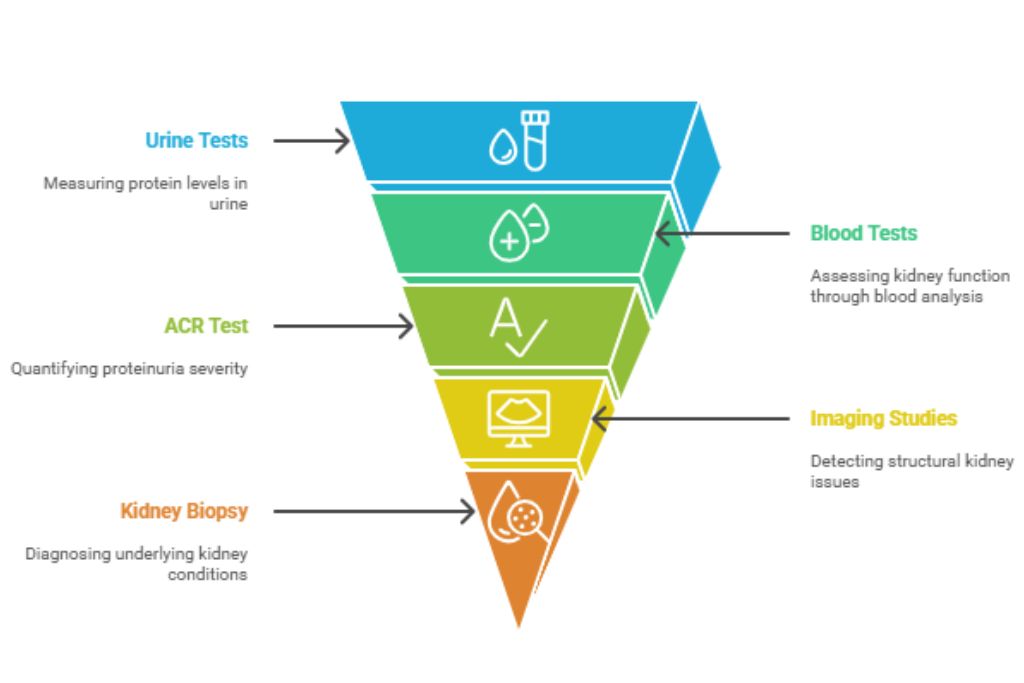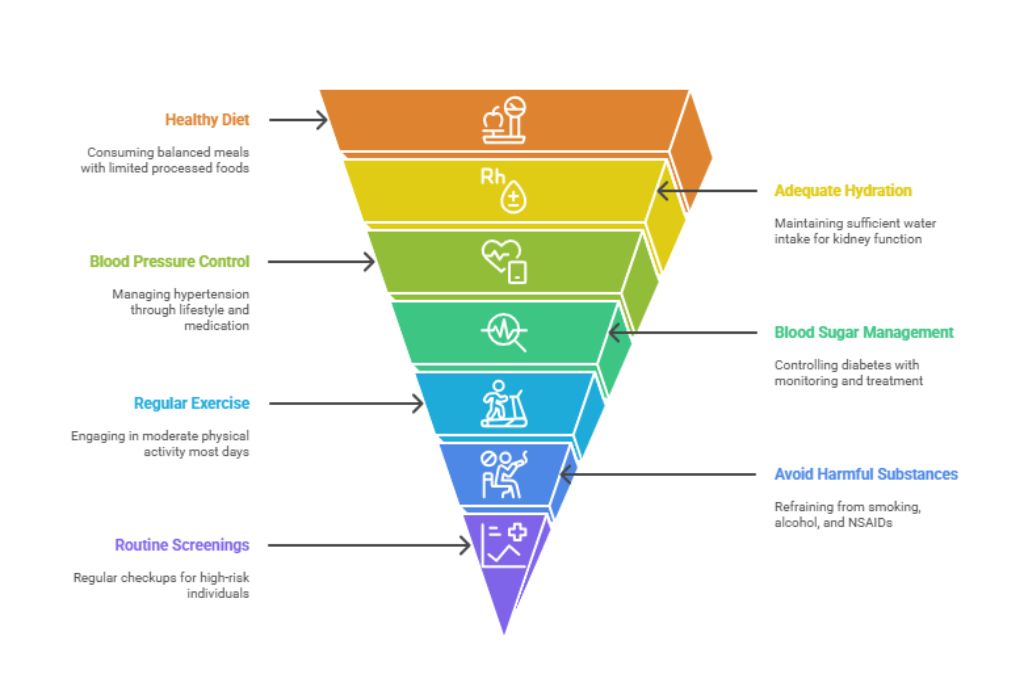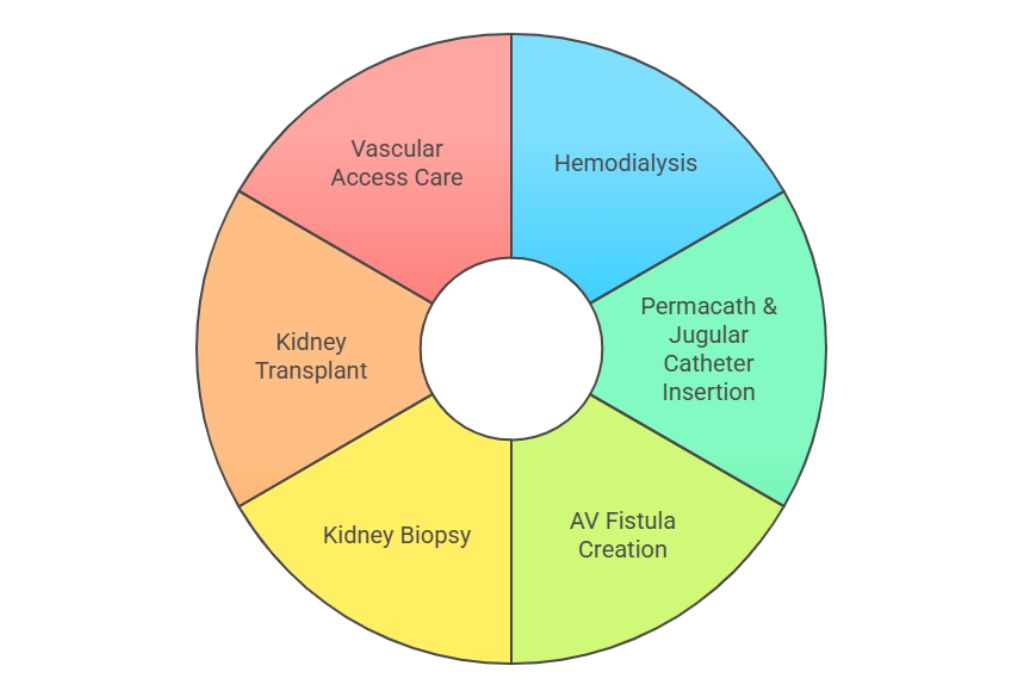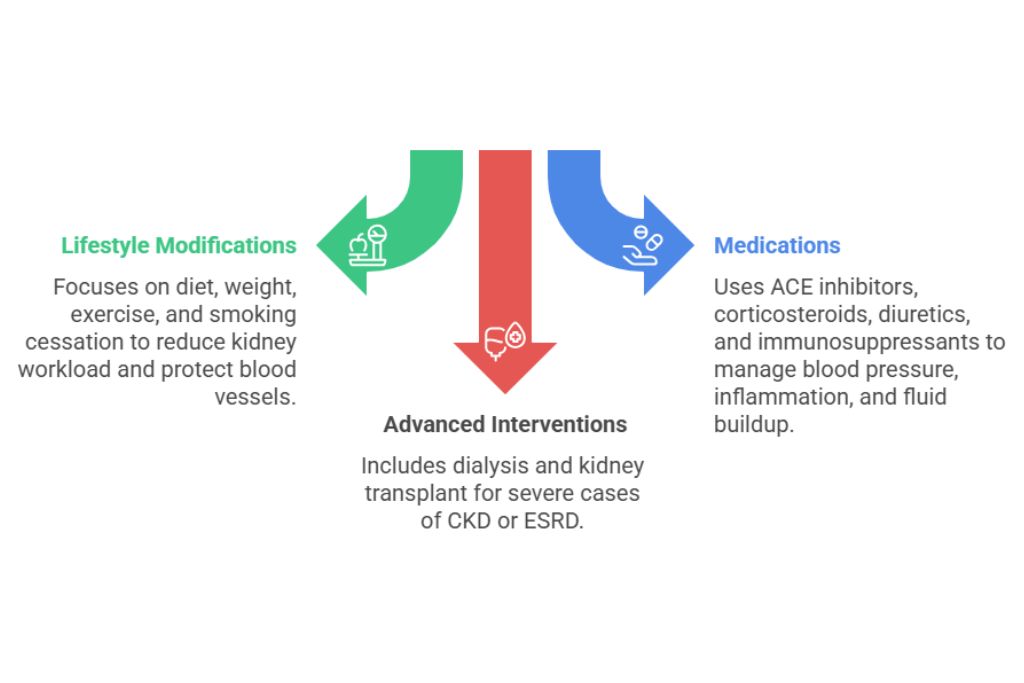What is Proteinuria?
Proteinuria means excess protein in the urine. It signals kidney health problems and needs timely
expert care to prevent complications. As a kidney disease specialist in Gorakhpur, Dr. Arpit Srivastava
offers specialized proteinuria treatment, combining advanced diagnostics with personalized care plans to
address this condition effectively.
He provides complete support for patients, including understanding its types, causes, effects on kidney
health, symptoms, diagnosis, evaluation, treatment options, advanced services, and preventive measures.
With a focus on compassionate and expert kidney care, patients across Purvanchal trust Dr. Srivastava
for effective management of proteinuria and overall kidney health.
Proteinuria occurs when abnormal amounts of protein, particularly albumin, are present in the urine.
Healthy kidneys filter waste while retaining essential proteins in the blood.
+91-7302104205

